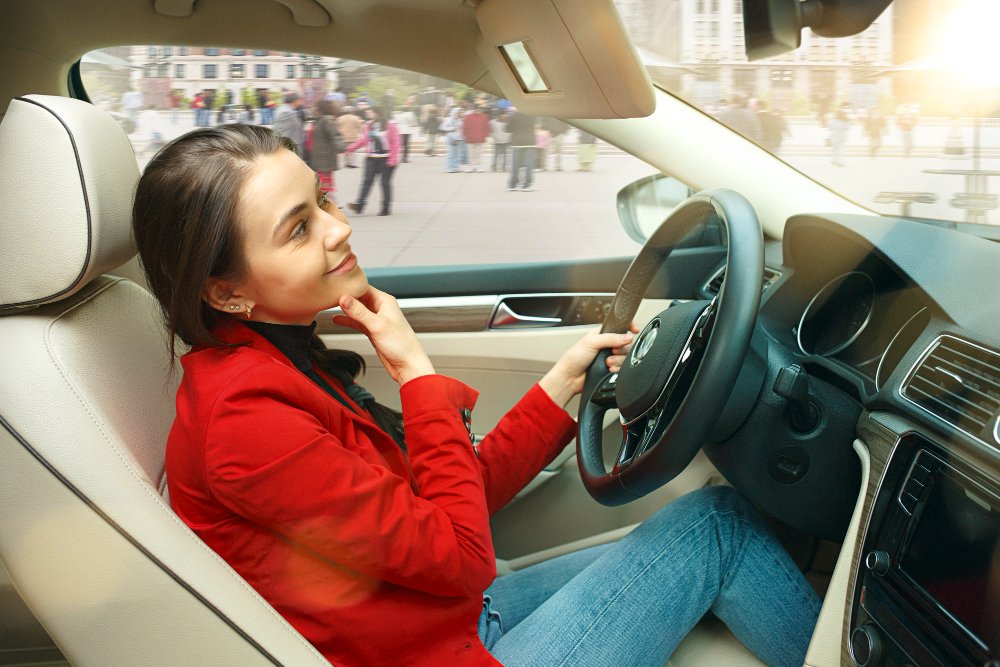The Activities That Are Considered a Distraction When Driving
- 1 What Is Distracted Driving?
- 2 Types of Distracted Driving
- 3 The Risks Associated with Distracted Driving
- 4 How to Minimize Distractions While Driving
- 4.1 1. Put Your Phone Out of Reach
- 4.2 2. Prepare Before You Drive
- 4.3 3. Take Breaks for Food and Drink
- 4.4 4. Limit Passenger Conversations
- 4.5 5. Stay Focused
- 5 The Legal Implications of Distracted Driving
- 6 Conclusion
Driving demands complete attention and focus to ensure your safety and that of others on the road. Unfortunately, distracted driving has emerged as one of the leading causes of accidents in recent years, particularly in the United States. While most people know texting or using a phone behind the wheel is dangerous, several other everyday activities can also contribute to distracted driving—and they often go unnoticed.
You’re not alone if you’ve ever questioned what qualifies as distracted driving. Many drivers engage in routine tasks without realizing just how hazardous they can be when performed while operating a vehicle. For those involved in a distracted driving accident, seeking legal help to recover fair compensation is vital. This article will explore various types of distracted driving, their associated dangers, and ways to minimize distractions to ensure safer roads for everyone.
What Is Distracted Driving?
Distracted driving is any activity that diverts your attention from the road. It’s not limited to using electronic devices like cell phones; it includes anything that causes you to take your eyes off the road, your hands off the wheel, or your mind off the task of driving.
Here are some of the most common examples of distracted driving:
- Using Your Phone: Whether texting, scrolling through social media, or making a call, using a mobile device while driving significantly increases your chances of being in an accident. Even a few seconds spent looking at your phone is enough to take your focus off the road.
- Eating or Drinking: It’s common for people to eat breakfast or sip coffee during their morning commute. However, these actions require you to take at least one hand off the wheel and divide your focus, making it more difficult to react quickly to changing road conditions.
- Engaging in Conversations: Talking to passengers can seem harmless, but it can easily divert your attention from the road, especially during emotionally charged or intense discussions.
- Adjusting the Radio or GPS: Fiddling with the radio dial, changing playlists, or programming your GPS while driving can take your eyes off the road long enough to cause a severe accident.
- Personal Grooming: Some drivers attempt to multitask by applying makeup, fixing their hair, or even shaving during their commute. These grooming habits are highly distracting and take your hands and attention away from the road.
Types of Distracted Driving

Distracted driving falls into three main categories, each of which presents unique dangers:
1. Visual Distractions
Visual distractions occur when something causes you to look away from the road. This might involve checking your phone, glancing at a billboard, or turning your head to view something outside the car. Even momentary distractions can lead to dangerous situations, such as failing to notice a pedestrian or an abrupt stop from the vehicle ahead.
2. Manual Distractions
Manual distractions involve any activity that requires you to remove one or both hands from the steering wheel. Examples include eating, drinking, or adjusting your car’s dashboard settings. Losing physical control of the vehicle, even for a second, can have catastrophic consequences.
3. Cognitive Distractions
Cognitive distractions occur when your mind is not focused on driving. This might involve daydreaming, thinking about work, or conversing with passengers. Mental distractions are hazardous because, although you may be looking at the road, your attention isn’t fully engaged with driving.
The Risks Associated with Distracted Driving
Distracted driving significantly increases the risk of accidents, as it reduces a driver’s ability to react to sudden changes on the road. This slower reaction time means distracted drivers are more likely to miss necessary signals such as traffic lights, stop signs, or a vehicle braking unexpectedly.
According to the National Highway Traffic Safety Administration (NHTSA), distracted driving accounts for a substantial percentage of all car crashes in the United States. The consequences can be severe, ranging from minor fender benders to life-altering injuries or fatalities. Moreover, victims of distracted driving accidents often face extensive medical bills, vehicle repair costs, and the potential loss of income due to time away from work.
Distracted drivers don’t just endanger themselves; they also pose a serious threat to passengers, pedestrians, cyclists, and other drivers on the road.
How to Minimize Distractions While Driving
Preventing distracted driving is relatively straightforward if you’re committed to focusing on the road. By taking a few proactive steps, you can significantly reduce your risk of accidents:
1. Put Your Phone Out of Reach
Consider placing your phone in the glove compartment, a purse, or a phone holder where it’s out of reach while driving. Many smartphones now offer “Do Not Disturb” modes that automatically block incoming calls and notifications when your car is in motion.
2. Prepare Before You Drive
Adjust your mirrors, set your GPS, and choose your music or podcast before driving. That way, you can avoid the temptation to fiddle with your car’s controls while on the road.
3. Take Breaks for Food and Drink
If you need to eat or drink during a trip, take a break and pull over at a safe location. Trying to manage food and steering simultaneously divides your attention and increases the chances of a mishap.
4. Limit Passenger Conversations
While it’s natural to chat with passengers during a drive, keep conversations light and avoid discussing anything that might distract you from the road. You can always continue the conversation when you’ve safely reached your destination.
5. Stay Focused
Remind yourself that driving requires your full attention. Simple habits like being aware of your surroundings and avoiding unnecessary activities can significantly enhance your safety on the road.
The Legal Implications of Distracted Driving
If you’ve been involved in an accident caused by a distracted driver, you may have the right to seek compensation for your injuries and damages. In many cases, proving that a driver was distracted during the accident can help strengthen your claim. Legal assistance from an experienced attorney can help you navigate the complexities of the legal process and ensure you receive the compensation you deserve.
Conclusion
Distracted driving is one of the most avoidable causes of car accidents, yet it continues to be a significant issue across the country. By understanding what activities are distractions and how they affect driving, we can all consciously try to stay focused and safe behind the wheel.
Distractions can have life-altering consequences, whether it’s something as simple as adjusting the radio or as dangerous as texting. Taking proactive measures to minimize distractions can help ensure safer roads for yourself and everyone around you. Stay alert, stay focused, and avoid distractions while driving to protect lives.

















